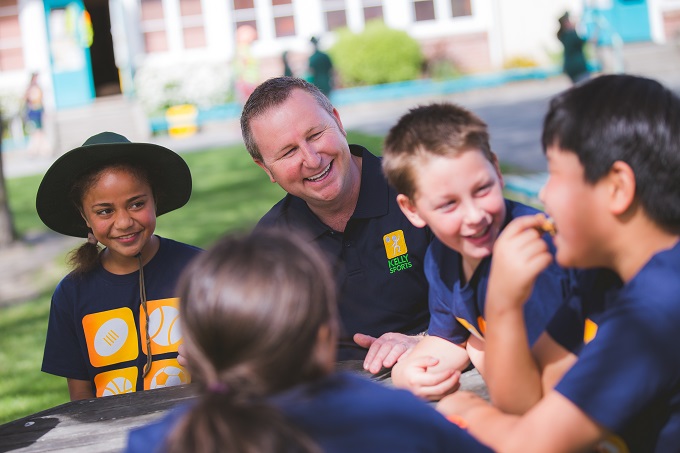
<p>Keeping kids busy and entertained during COVID lockdown has been a powerful lesson for New Zealand educators.</p>
<p style="text-align: center;"><a href="https://www.schoolnews.co.nz/latest-print-issue/" target="_blank"><strong>Read our new Term 4 issue online today!</strong></a></p>
<p>With schools and day care centres closed for two months early in the outbreak, sales of board games and Lego kits went through the roof and social media boomed with reports of parents, many forced to work from home, helping their children with all manner of indoor and outdoor activities – everything from walking or running, bike riding, scavenger hunting; painting and drawing; creating images from leaves, sticks and flowers; colouring-in with picture books on computer apps; or using video tutorials to make all sorts of paper shapes in origami.</p>
<p>Researchers are considering how lessons from the pandemic can help educators continually challenge active, young minds and bodies with new ideas and adventures. They assert that a child’s exploration and learning does not stop just because the school bell has gone. In out of school time, they say, children need choices, a sense of freedom and the chance to participate and connect with others in their own way, in their own time. </p>
<p>Physical activity is fundamentally important to children’s health and wellbeing and the World Health Organisation states that a lack of physical activity is the leading cause of premature death and a significant risk factor for stroke, diabetes, and cancer.</p>
<p>Developing positive lifestyle habits at a young age has been reported to have a positive impact on growth, development and general health well into adulthood. By contrast higher levels of recreational screen time among children have been associated with unhealthy eating, increased risk of obesity, increased risk of depressive symptoms and reduced sleep duration and quality.</p>
<p>Despite this hard evidence though and continued warnings, a 2018 global survey found that the majority of children in New Zealand, Australia and other developed countries failed to meet the daily physical activity and screen time guidelines. In fact, staggeringly, only a quarter of children aged 5–17 from the world’s wealthiest countries actually met the recommended amount of moderate-to-vigorous physical activity – one hour a day. </p>
<p>In New Zealand, play and recreation activities dominate at the more than 1200 providers of Out of School Care and Recreation (OSCAR) offering before/after school and holiday programs. The centres are based in schools and other community venues.</p>
<p>The <em>New Zealand Now</em> government website reports that children under the age of 14 must not be left alone without reasonable care and supervision. Before school care (7:30-8.30 am) and after school care (3:00-5.00 pm) is usually available from either private or community childcare providers.</p>
<figure id="attachment_17909" aria-describedby="caption-attachment-17909" style="width: 680px" class="wp-caption aligncenter"><img class="size-full wp-image-17909" src="https://www.schoolnews.co.nz/wp-content/uploads/2020/11/Paul-Jamieson-Copy.jpg" alt="" width="680" height="453" /><figcaption id="caption-attachment-17909" class="wp-caption-text">Paul Jamieson, Kelly Club</figcaption></figure>
<p>When it comes to out of school care, “the biggest misconception is that all providers are the same,” says Paul Jamieson from out of school care provider Kelly Club who provided his industry view to <strong><em>School News</em></strong> this issue. He explains: “Before and after school care programmes are either based at schools or in local community halls.</p>
<p>“In theory, they are achieving the same result of caring for children while their parents and caregivers work, but a quality programme will also attract kids that don&#8217;t necessarily need care, but want to attend because they see the cool things that are happening, and they want to join the action.</p>
<p>“Holiday programmes are a little different, where you see more specialised programmes such as arts, drama, and sport-specific and outdoor activity programmes along with the traditional mainstream school and community-based programmes. A well-rounded care programme should offer a variety of different activities. The core content of an exciting programme would involve sports and games, arts and crafts, baking and cooking, science and discovery, and structured free play.”</p>
<p>The oscarnz website says that the after-school programs &#8220;aim to help children transition out of their busy school day with flexible and responsive programs that cater for their needs and interests. Children may be enrolled in after school programmes because their parents are working or in training, or simply because of the activities that are on offer.</p>
<blockquote>
<p>Most OSCAR programs revolve around child-directed play and fun group activities, rather than further schooling. Children are encouraged to have a go and there will often be time to simply hang out and unwind.</p>
</blockquote>
<p>&#8220;Belonging to an OSCAR group helps children learn valuable social skills and the importance of helping others.’’</p>
<p>Most OSCAR participants are aged 5-13.</p>
<p>OSCAR services do not affiliate under a single governing body and mostly operate independently of each other. However, some do collaborate for support, advice and professional development through The Out of School Care Network (OSCN), based in Auckland and The OSCAR Network, based in Christchurch.</p>
<p>New Zealand’s Ministry of Social Development says an OSCAR Fee Subsidy is available.</p>
<p>Ultimately, when it comes to out of school care, Mr Jamieson says, “looking after kids is a very privileged thing to do, so schools should ensure that their out of school care provider is OSCAR-approved, has a comprehensive safety plan, and robust up to date policies and procedures including risk assessment forms and daily checklists for staff to complete. Regular engagement and communication between the school and the out of school care provider should also be happening to ensure that all expectations that the school and community require are in place and being adhered to while the programme is running.”</p>
<p> ;</p>

NZEI Te Riu Roa is considering legal action against the government for the disestablishment of…
NZQA is implementing AI-marking for all Year 10 written assessments from this year onwards, following…
Teaching personal financial responsibility isn't enough. Children should be taught broader economic context, argue New…
When students can't hear the teacher, they can't learn properly. Sound quality matters in education…
The Garden City is rich with learning opportunities, no matter what subject or part of…
Teaching Council of Aotearoa launch school leaders’ stories project with Unteach Racism to challenge institutional…
This website uses cookies.